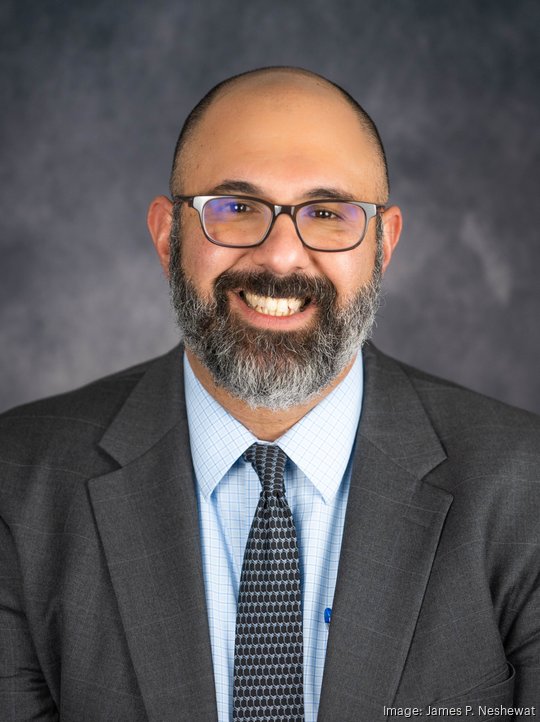
With the widespread adoption of the internet and zero-fee stock transactions, the financial sector has exploded over the past 20 years. With that, came an explosion of financial information.
Gen-X adopted to the new paradigm, while the subsequent generations were native to the technological advances. But as these generations continue to accumulate more wealth, the need for professionals to step in is growing.
That's at least what James Neshewat, CEO and principal of St. Johns Asset Management in Jacksonville sees.
In a conversation with the Business Journal, Neshewat shared how what he's learned about millennials and Gen-Z's financial needs, and how he is trying to educate them to make the best financial decisions.
The following Q&A has been edited for clarity and brevity.
We are beginning to see the largest wealth transfer in mankind. Older generations are passing on their wealth to their children and grandchildren. What are you learning about this demographic as potential clients?
The biggest change for millennials and Gen-Z is the sheer amount of information they are inundated with about financial products that didn't even exist when their parents and grandparents were their age. It's not like the 1990s or the 2000s when the internet was a novel invention; there's now an intentional disruption in economic communication by overloading people with information that seems factual, but it's actually normative or interpretive.
What are you and other wealth managers doing to attract them as clients?
Because of the volume of financial noise, I and my peers have been trying to simplify the decision-making process. Instead of selling them a product, we educate them and explain options for them to explore. They also don't want to feel like they are being sold something. It's so difficult to wade through the minutia of financial literature and information. I've studied mathematics, economics and law, and have do this as a career and it's a lot for me to keep up with.
Gen-Z and millennials have embraced zero-fee stock transactions and the retail stock trader movement, in general. How important is it to convince these generations they still need traditional wealth managers?
I don't believe it's intelligent to have any one asset class be the marker of your future. At least with the most typical young clients we see, they are in the medical profession or own their own business. So, I think for our average client, they're not just looking for stock investment information. They're looking for somebody to view their stock portfolio in conjunction with their business, as well as their real estate investments, taxes and legacy plan. It's important for this generation to take every financial advantage they can because they won't be able to afford property like previous generations. Plus student loan debt. This next generation... I feel bad for them because they're missing the ability to own their own property and they're pretty resigned to the fact that they'll be renting for a longer duration than Gen-Xers and the boomer generation.
Sign up here for the Business Journal’s free morning and afternoon daily newsletters to receive the latest business news impacting the First Coast. For more business intelligence, follow us on LinkedIn, Facebook, Twitter and Instagram.



